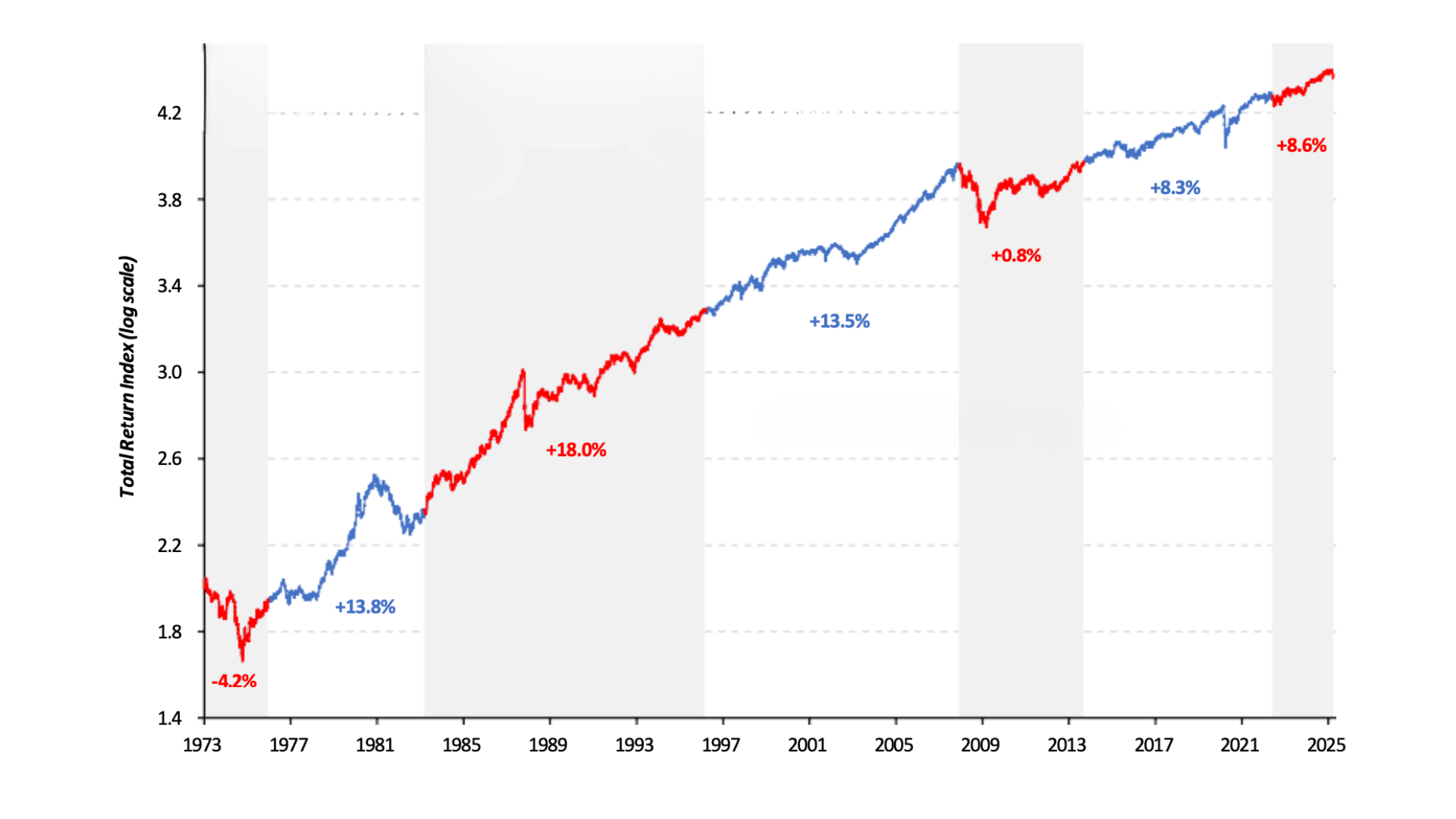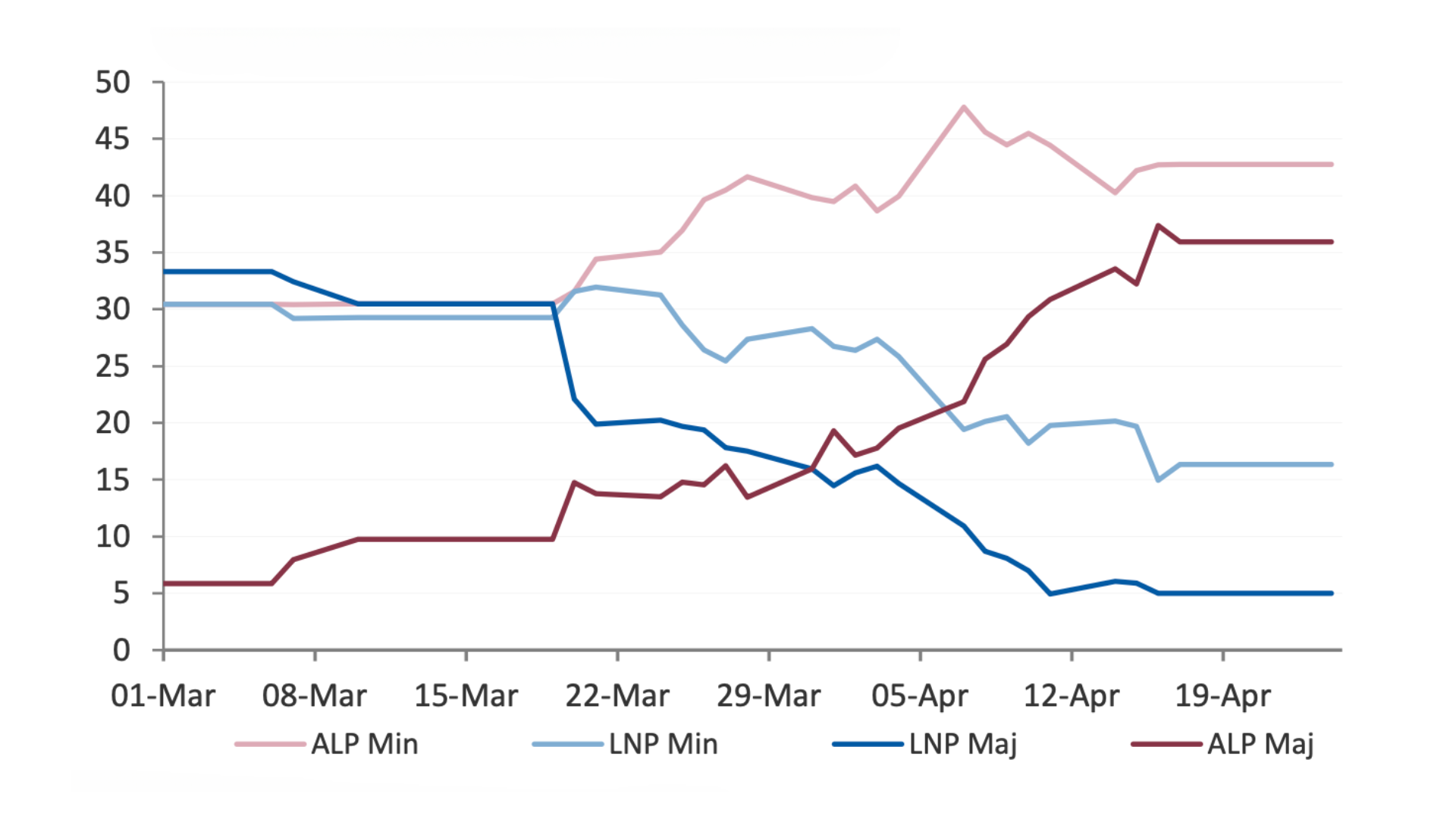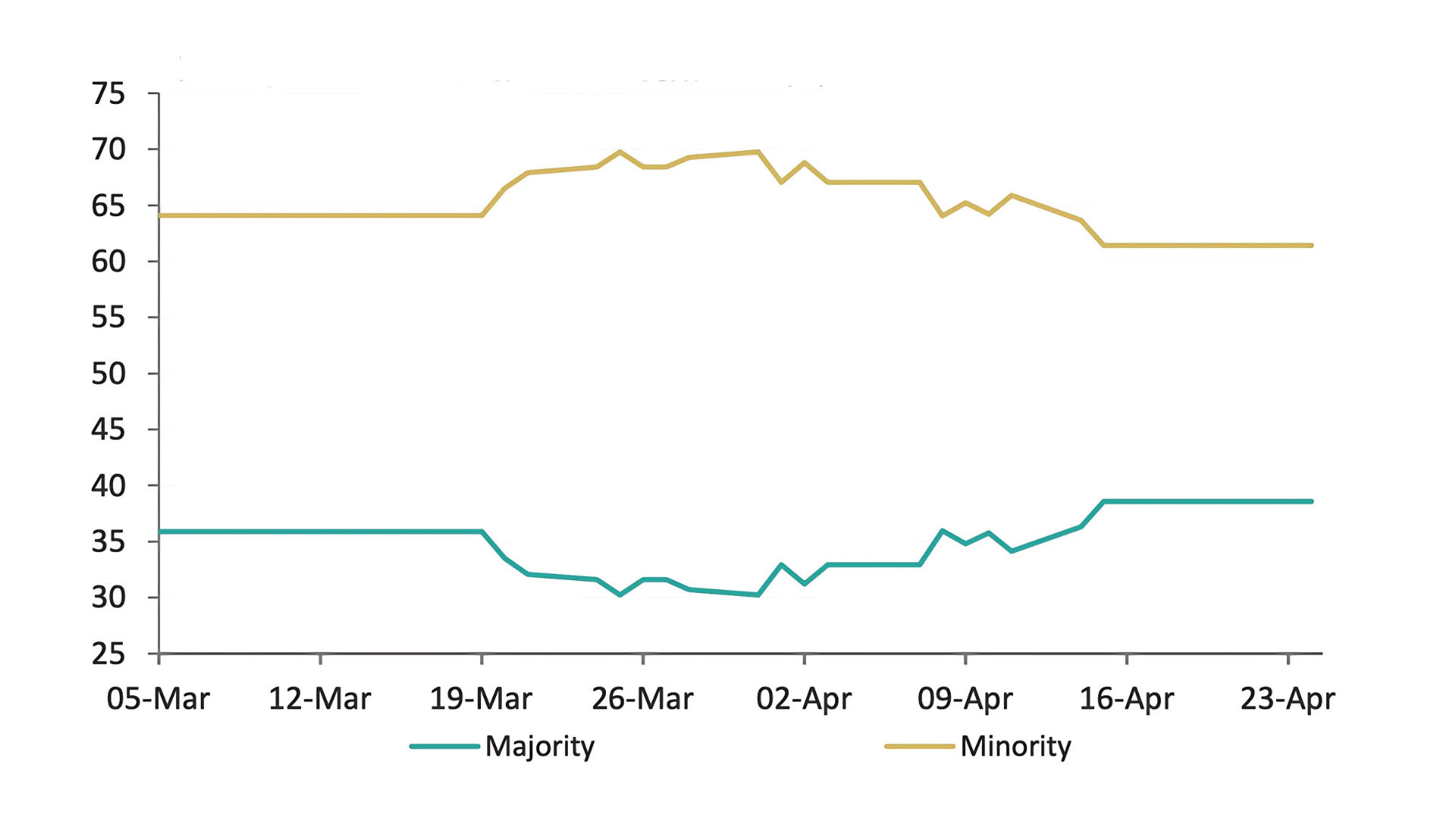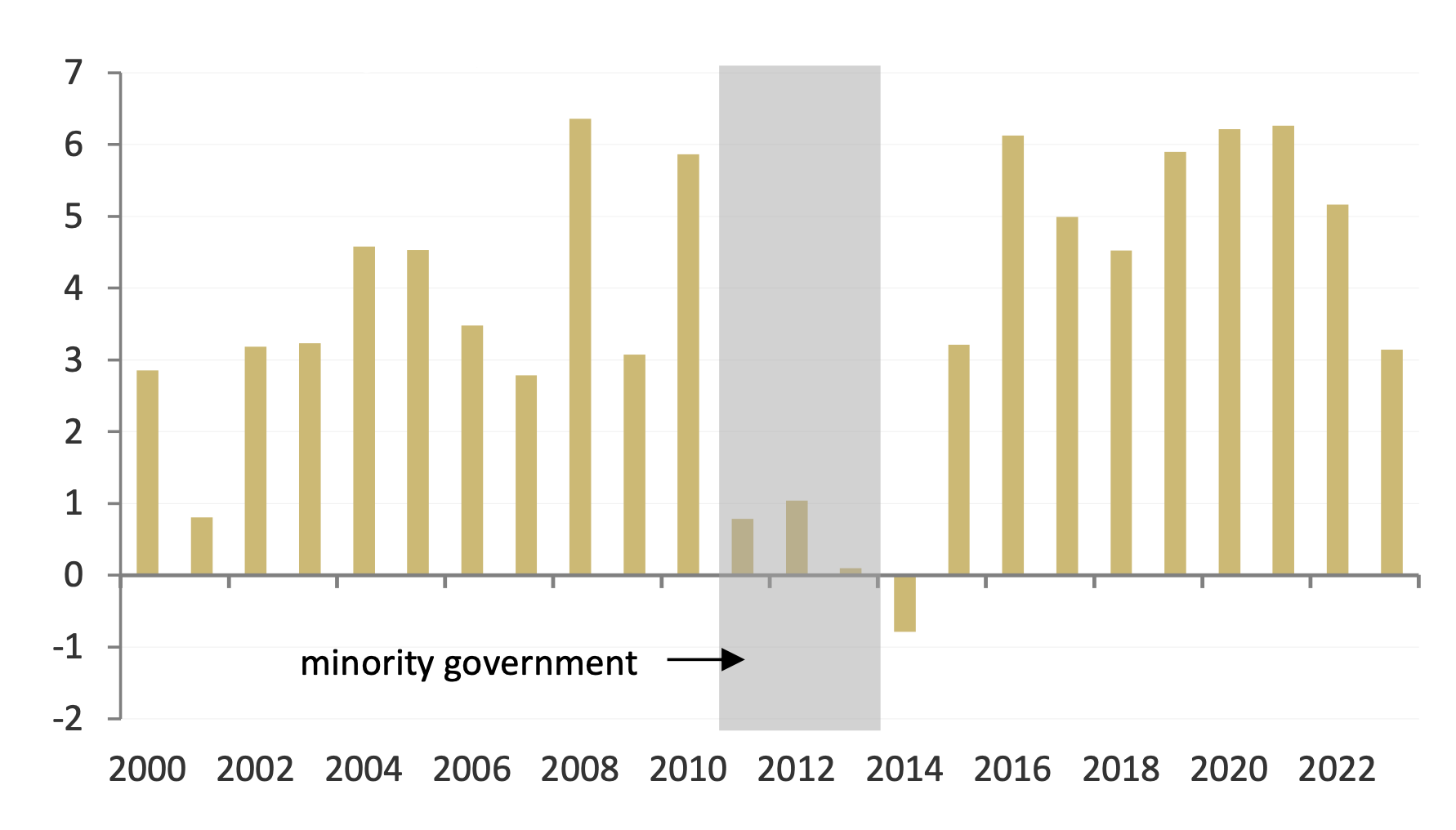What the bookies are telling us about the election and the key risk it poses for your portfolio
With the federal election around the corner and polls still relatively tight, attention is now turning to its likely impact on markets.
According to analysis by UBS, the federal election is unlikely to have any outsized impact on the stock market, with global trade policy, tariffs and the RBA the true masters of the ASX’s fate in the near-term.
And the stock market historically has been politically agnostic, according to UBS analyst Richard Schellbach.
“The Australian equity market has staged periods of solid returns irrespective of which major party held government at the time,” he said.
Average ASX 200 total returns by party of government

It’s only after Labor’s election in 2007 that the ASX 200 saw sharp declines in the months after Australia went to the polls, and the GFC can take the blame for that.
But while the prevailing wisdom suggests not much is likely to change regardless of the result this Saturday, there is one potential outcome that could put a dent in the ASX's growth over the next few years.
Where the election matters for stocks
According to analysis by Morgan Stanley, “Government spending contributed the entirety of Australia's economic growth in 2024, so the trajectory of fiscal policy is clearly consequential to the outlook.”
Government spending has been the key driver of economic growth recently, and this would likely continue under either major party.
If elected, both Labor and the Coalition are promising spending growth in the form of tax cuts, rebates and funding announcements, which is broadly positive news for the economy and domestic earnings.
But there is a third outcome in this year’s election that could put this growth at risk.
The big risk
While polls remain tight, a Labor minority government is currently the most likely outcome according to OddsChecker, at 13/10.

A hung parliament is also odds on at 8/11, while an overall majority result is as likely as a Labor minority government, also at 13/10.

Australia’s only recent experience with a minority government was the Gillard Labor government between 2010 and 2013, when the world economy was still reeling from the GFC a few years earlier.
But there was one key development during this time that is worth paying attention to - a vast reduction in public spending growth.

If a minority government is the outcome this year, it could throw a spanner in the works on short-term growth and have a knock-on effect on the stock market.
“The experience of the last minority government (2010) was a subsequent sharp slowing in public spending,” said Morgan Stanley analysts in a recent note to clients.
“Given the reliance on government spending in recent economic outcomes, a minority government would pose more near-term risk for growth.”
And with the wider macroeconomic uncertainty, a significant cut to government spending (and therefore growth) could see Australia experience a period of negative growth.
The potential opportunities
Regardless of the outcome on Saturday, there are likely to be some stock winners.
With both parties announcing a raft of housing policies that are likely to increase demand in the short term (and supply in the longer term), a majority government of either stripe could be good news for property and construction stocks, including REITS.
Martin Hickson from 1851 Capital suggests companies like Cedar Woods (ASX: CWP) and Peet (ASX: PPC) could benefit because of their exposure to residential construction, but believes the election won’t have too much of an impact on the wider stock market.
Despite the potential threat to growth, there could also still be opportunities for investors if a minority government were to emerge following the election.
Morgan Stanley’s analysis suggests two-thirds of independent candidates who have a realistic chance of being elected list climate action as one of their key policy areas.
This could be good news for green energy and sustainability companies as climate action is likely to be one of the demands from cross-benchers in return for supporting government legislation.
3 topics
2 stocks mentioned

